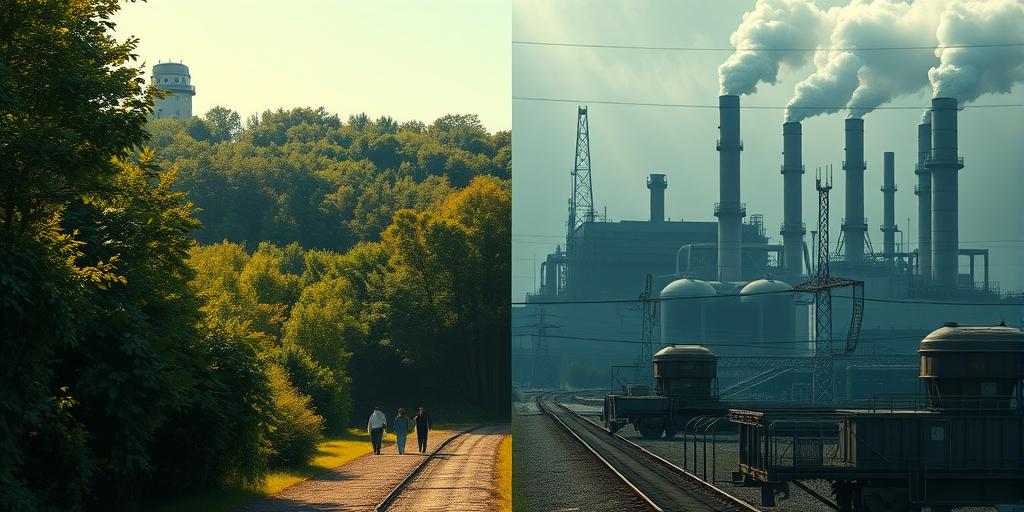Is America truly doing enough to combat climate change? That's a question that keeps many of us up at night. The planet's future hangs in the balance, and the United States, as one of the world's largest economies and greenhouse gas emitters, plays a pivotal role. But are our current efforts enough to avert a climate catastrophe? Let's dive deep into the complexities of this critical issue and explore whether America is meeting the challenge head-on.
The Current State of Climate Action in America
The United States has implemented various policies and initiatives to curb greenhouse gas emissions. The landmark Paris Agreement, although temporarily abandoned under the previous administration, saw the US rejoin under the Biden administration, committing to ambitious emission reduction targets. But translating these commitments into tangible action is a monumental task. The Clean Air Act, for instance, continues to be a key tool in regulating pollutants, including those impacting climate change, although its effectiveness in achieving emission reduction goals is a topic of ongoing debate. The recent Inflation Reduction Act also includes provisions focused on clean energy development and energy efficiency, marking a significant step towards a greener economy. However, is it enough? Are these measures ambitious enough, and are they being implemented quickly and effectively enough to make a substantial difference?
Existing Policies and their Effectiveness
Many existing environmental regulations and incentives are proving effective in some sectors. Renewable energy sources, like solar and wind power, are becoming increasingly competitive, partly due to government subsidies and tax credits. These incentives are not only reducing our reliance on fossil fuels but also creating new jobs in the clean energy sector – a win-win situation, right? However, some critics argue these policies need to be more comprehensive, requiring stronger regulations on industries with high carbon footprints and more substantial investment in clean energy infrastructure.
The Role of Technology and Innovation
Technological innovation holds the key to effective climate action. Investing in research and development of clean energy technologies, like carbon capture and storage, and improving battery technology for electric vehicles are crucial. America is a global leader in innovation, but we need to drastically ramp up funding and research efforts to develop and deploy these technologies at scale and within the timeframe demanded by the climate crisis. This requires collaborative efforts between the government, private sector, and research institutions, all focused on accelerating the adoption of these game-changing technologies.
The Challenges Facing America's Climate Efforts
America's efforts to combat climate change aren't without their significant challenges. Political polarization, lobbying by fossil fuel interests, and economic concerns often impede progress. Some argue that the economic cost of implementing aggressive climate policies could be too high and negatively impact the economy. This is a crucial concern that requires a careful balancing act. Transitioning to a sustainable economy needs to be planned in a way that minimizes economic disruption and supports workers in impacted industries. It also necessitates addressing environmental justice concerns, particularly in communities disproportionately affected by pollution. Furthermore, international cooperation is vital. The climate crisis is a global issue, and collective action is essential to achieve meaningful progress. There needs to be a collective effort among all the nations to meet the demands of the climate crisis.
Political Obstacles and Economic Considerations
The political divide over climate change is a significant impediment. Reaching consensus on ambitious climate policies and securing long-term funding remains extremely challenging. The economic concerns raised by some need to be addressed through well-designed policies that support workers in the transition to a green economy. This includes investment in job retraining, creation of green jobs, and assistance for communities facing economic hardship due to climate action.
International Cooperation and Global Responsibility
Climate change is a global issue that requires international cooperation. The United States needs to work with other countries to reduce emissions and support developing nations in their transition to a low-carbon economy. This may involve sharing of technological expertise, providing financial assistance, and fostering international collaboration on climate research and policy. Without global cooperation, national efforts may prove insufficient to tackle the global climate crisis.
The Path Forward: A Balanced Approach
Combating climate change requires a balanced approach that considers environmental sustainability, economic growth, and social equity. This involves investing in renewable energy, improving energy efficiency, and adopting carbon-reducing technologies. But it also needs to involve addressing economic concerns and ensuring a just transition for workers and communities affected by the shift to a greener economy. Moreover, supporting international cooperation and fostering innovation remain crucial for meeting the climate challenge. Policies must be crafted to incentivize sustainability, make transitioning to a green economy less financially stressful, and involve the communities most likely to be negatively impacted to avoid social unrest.
Investing in a Sustainable Future
Investing in a sustainable future involves more than just financial resources. It also involves commitment to fostering innovation, supporting green jobs, and promoting energy efficiency. This requires a multi-pronged approach that includes government incentives, private sector investment, and public awareness campaigns. Educating the public on sustainable practices is also vital to drive consumer demand for environmentally friendly goods and services. Furthermore, we need to invest in research and development to accelerate technological innovation that will ensure the sustainability and profitability of green business practices.
The future of our planet depends on our collective action. We must demand strong, comprehensive climate policies from our leaders and support businesses and organizations working towards a sustainable future. Let's make America a global leader in climate action, not just in words, but in deeds. Start by contacting your elected officials and letting them know how important this is to you. The time to act is now!




